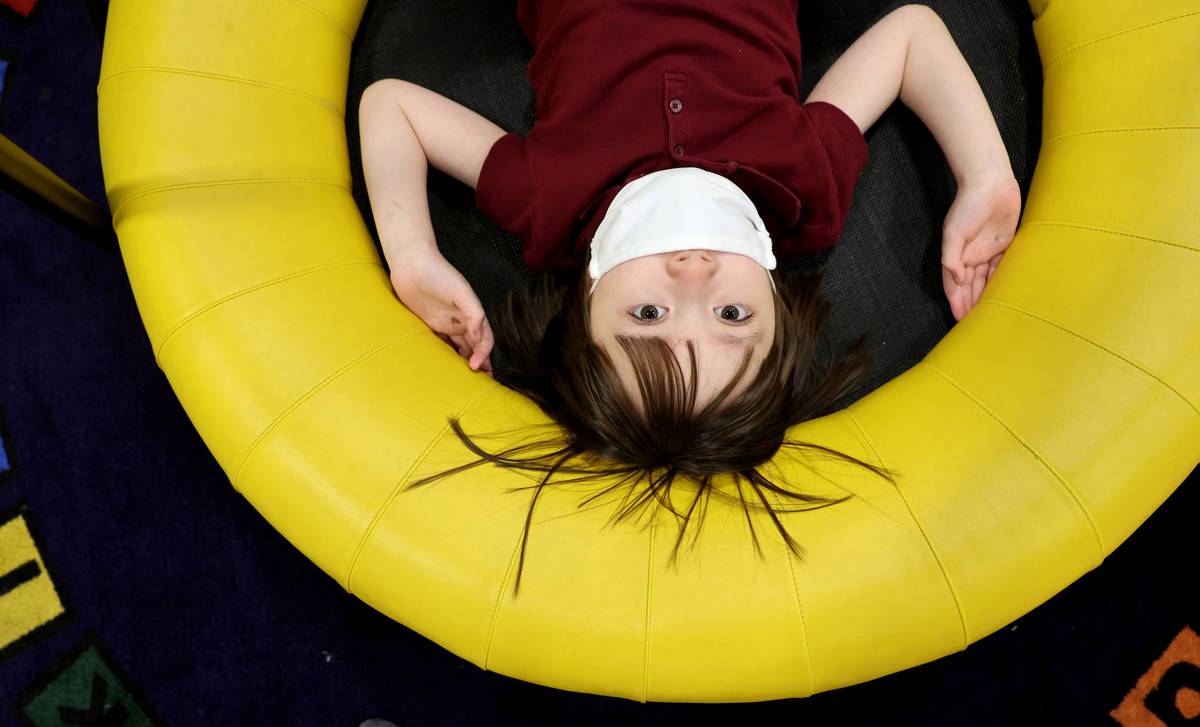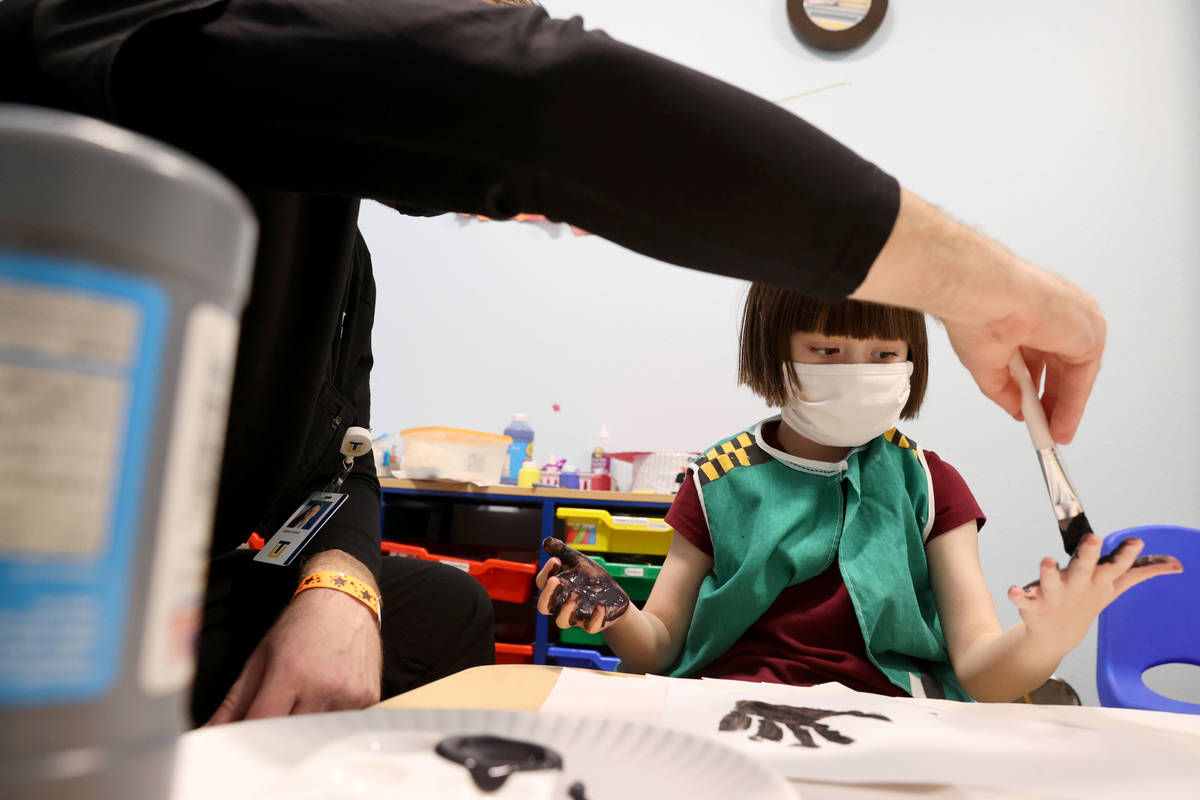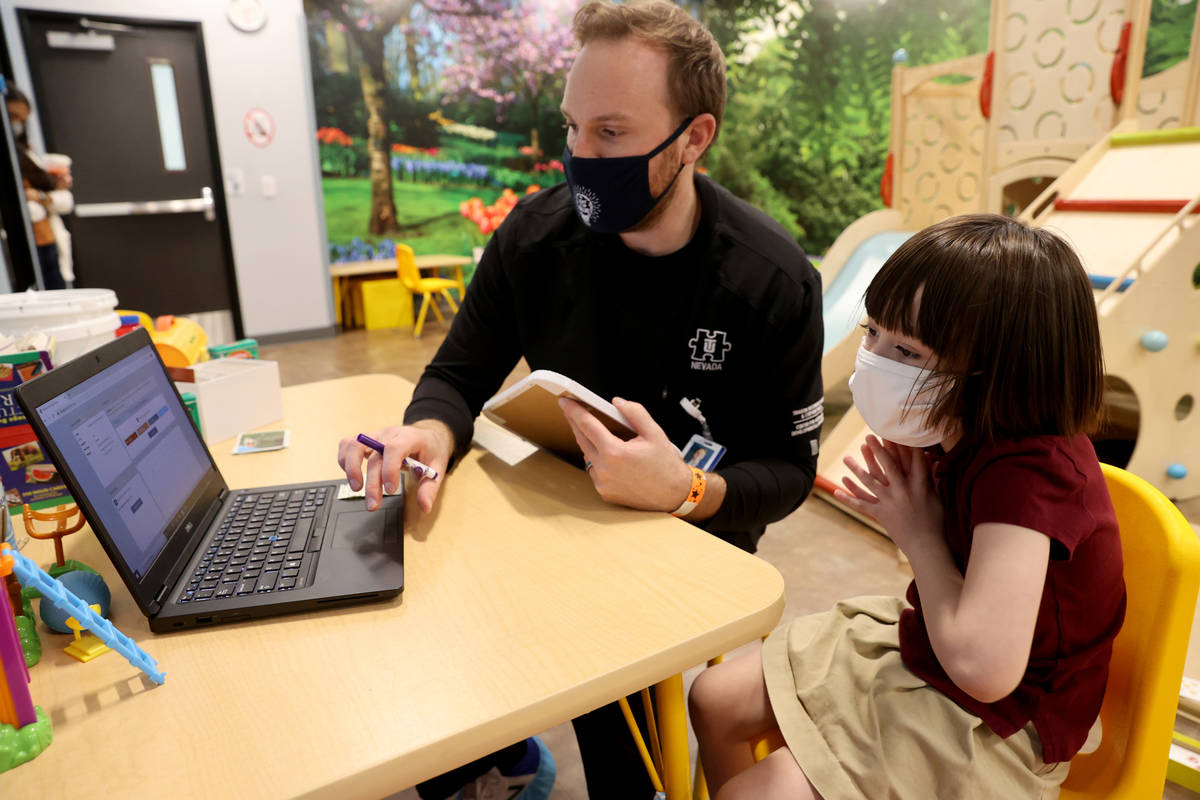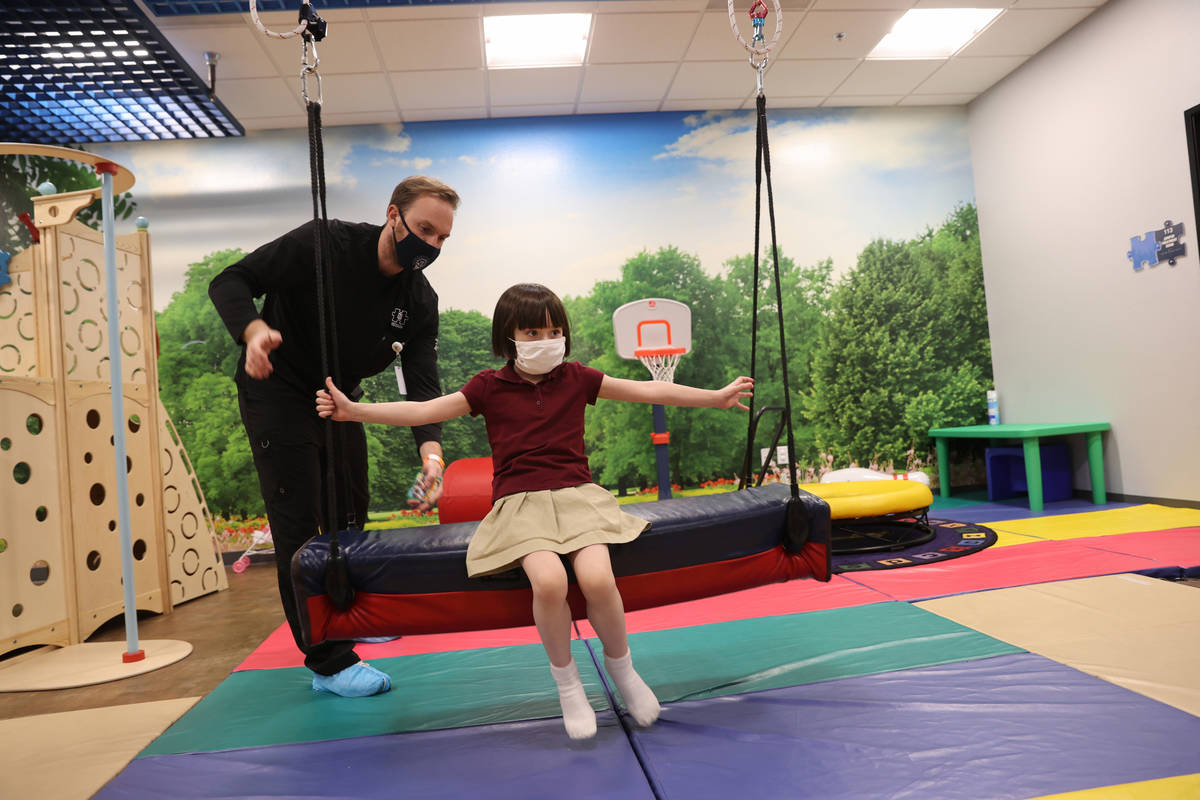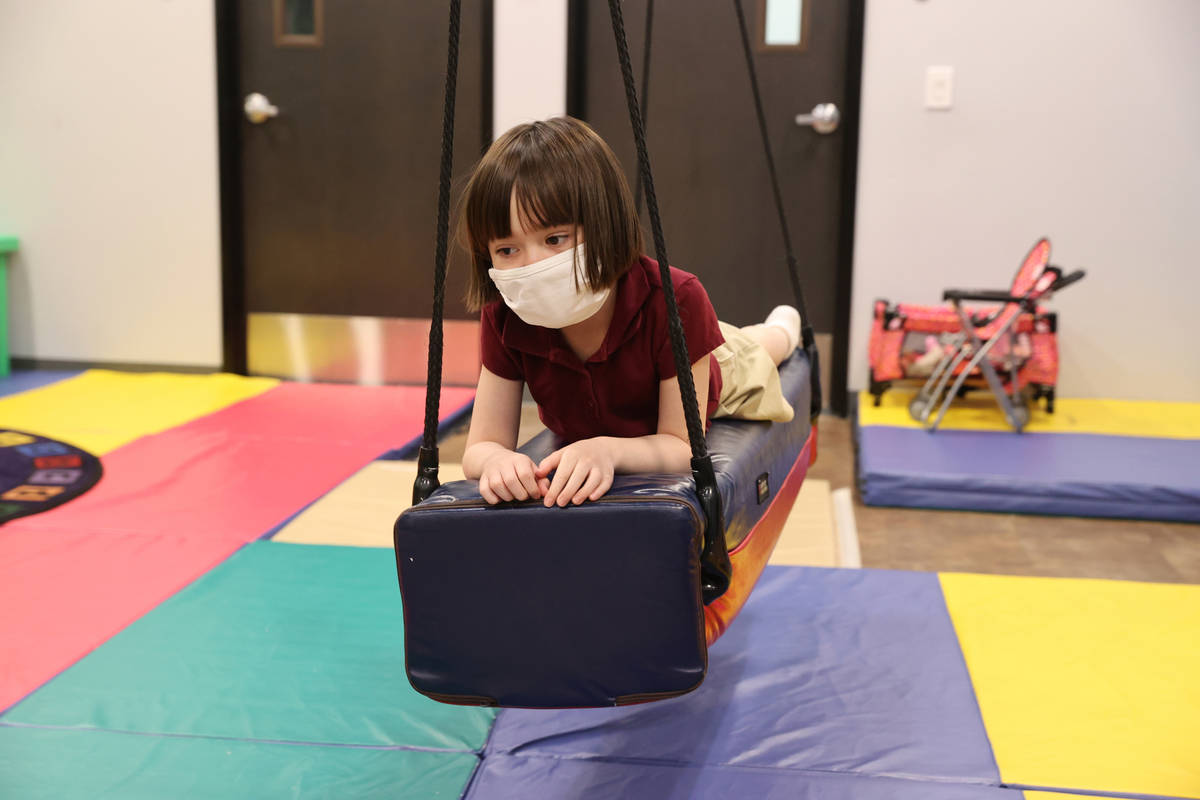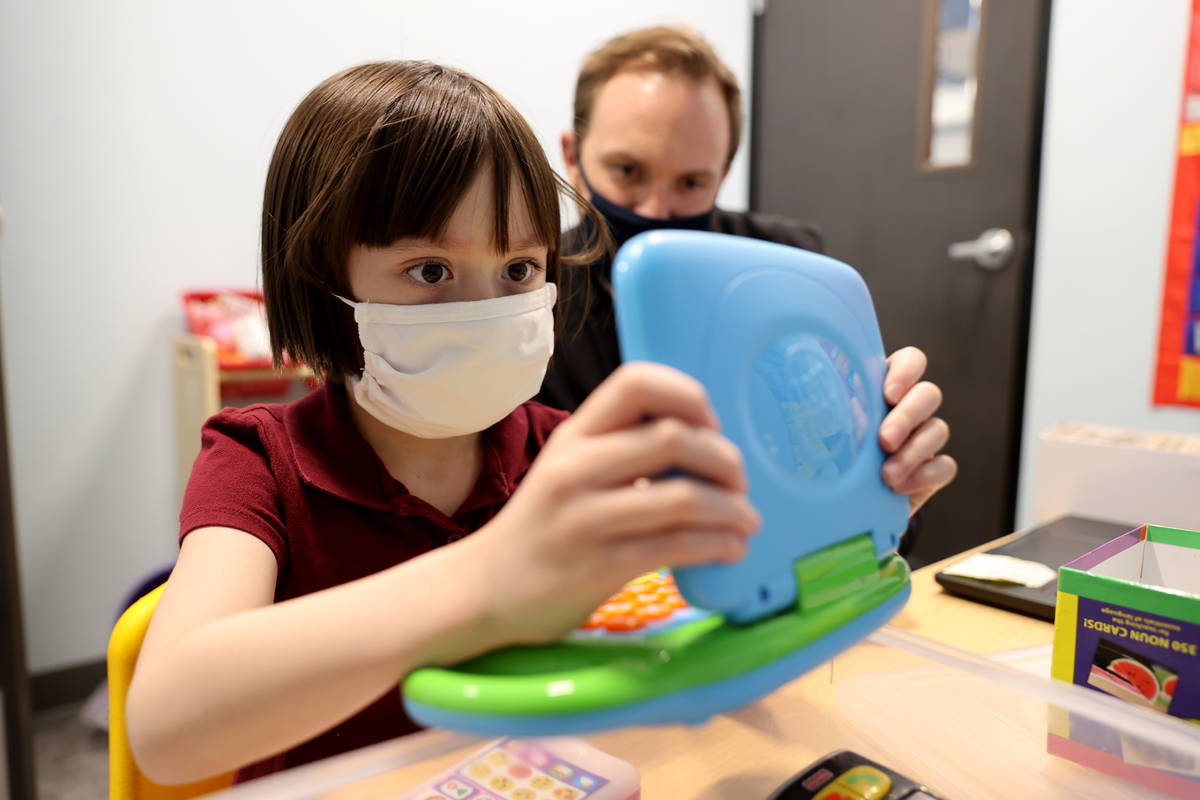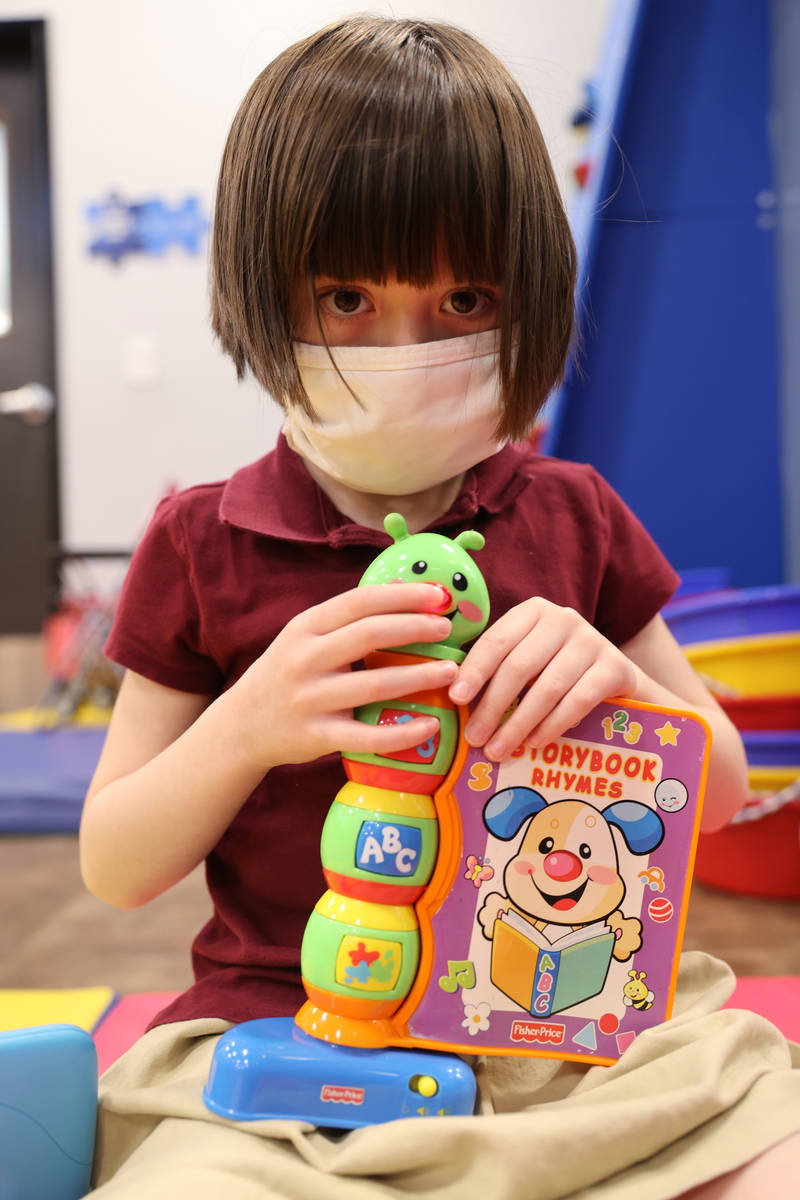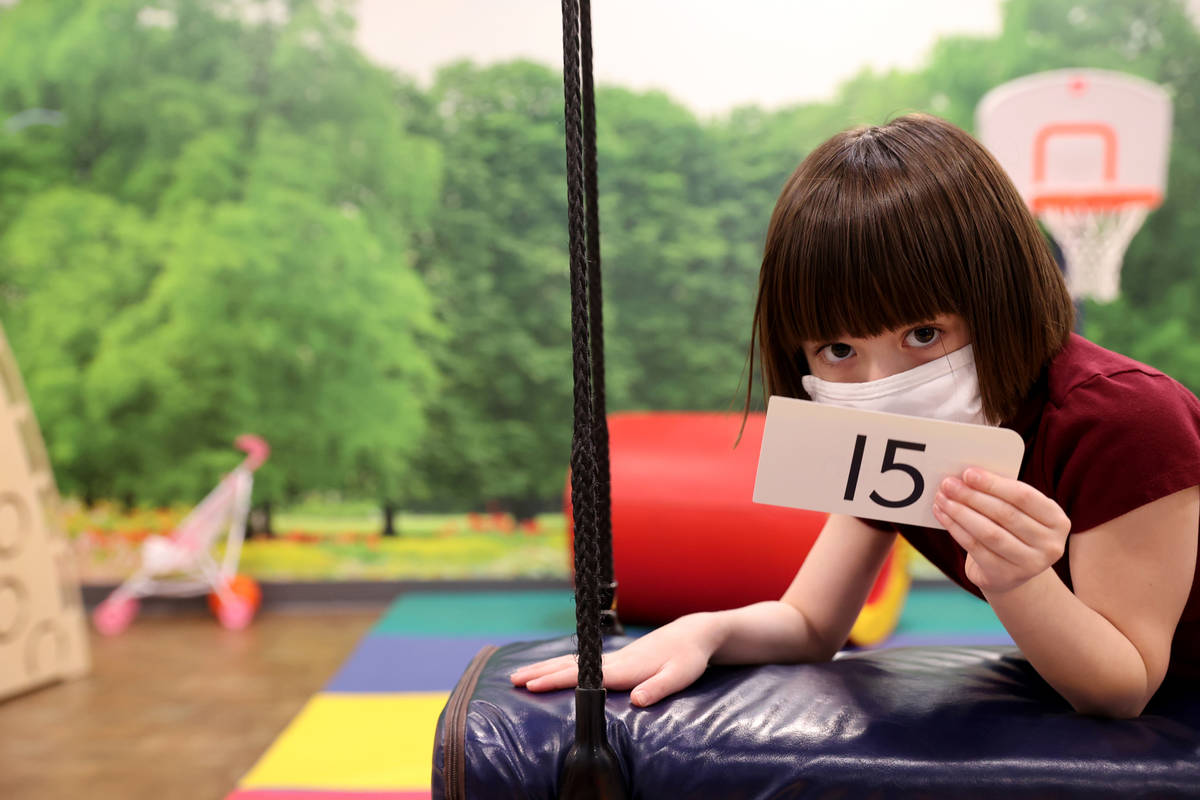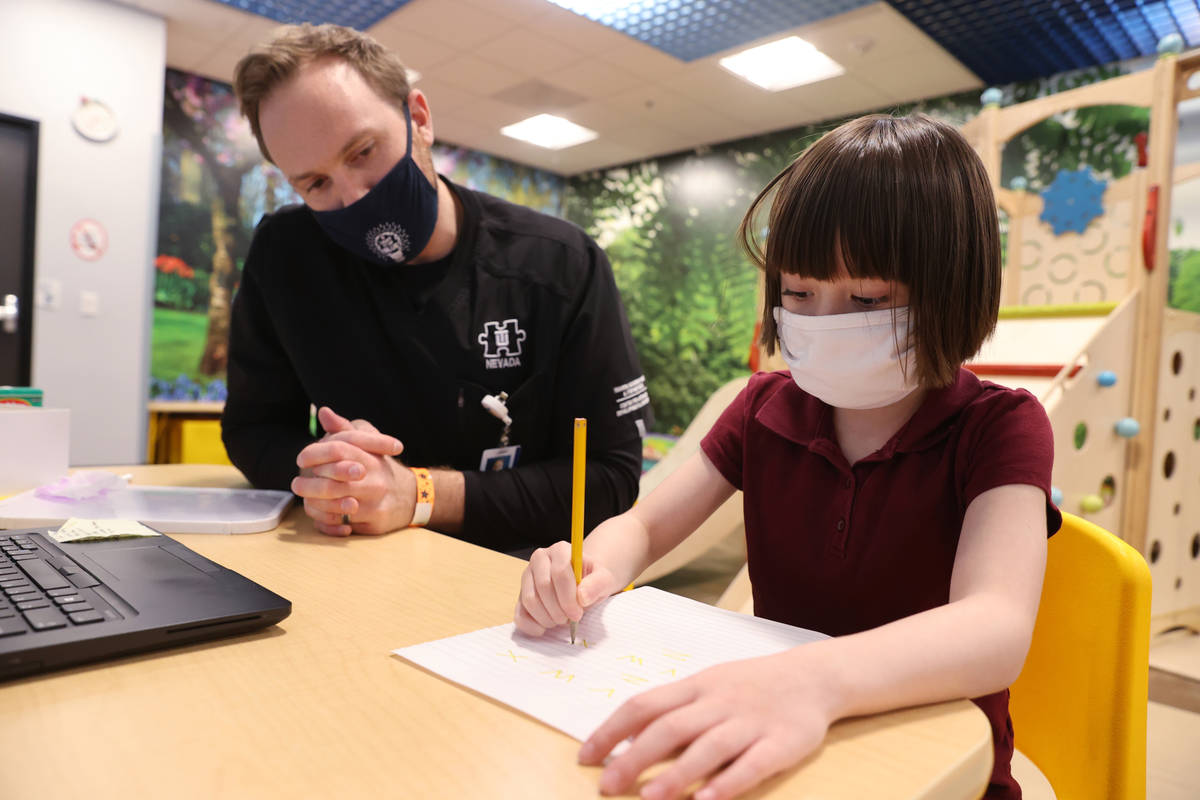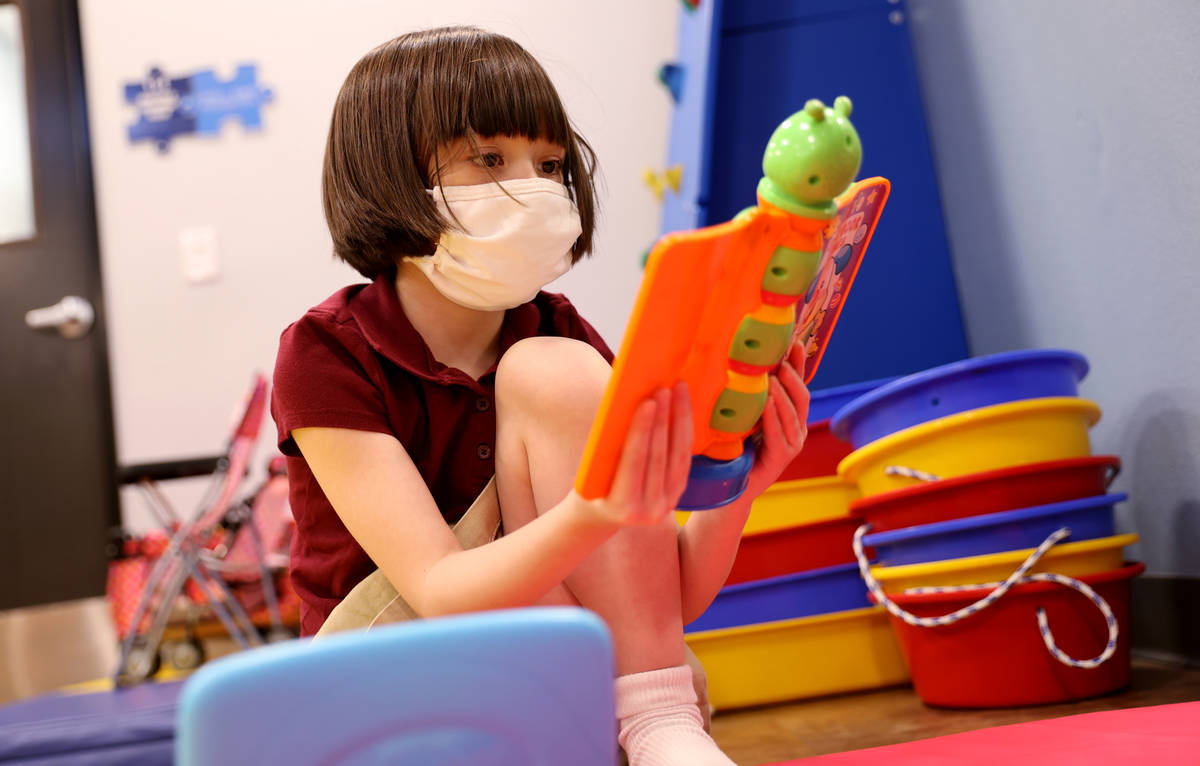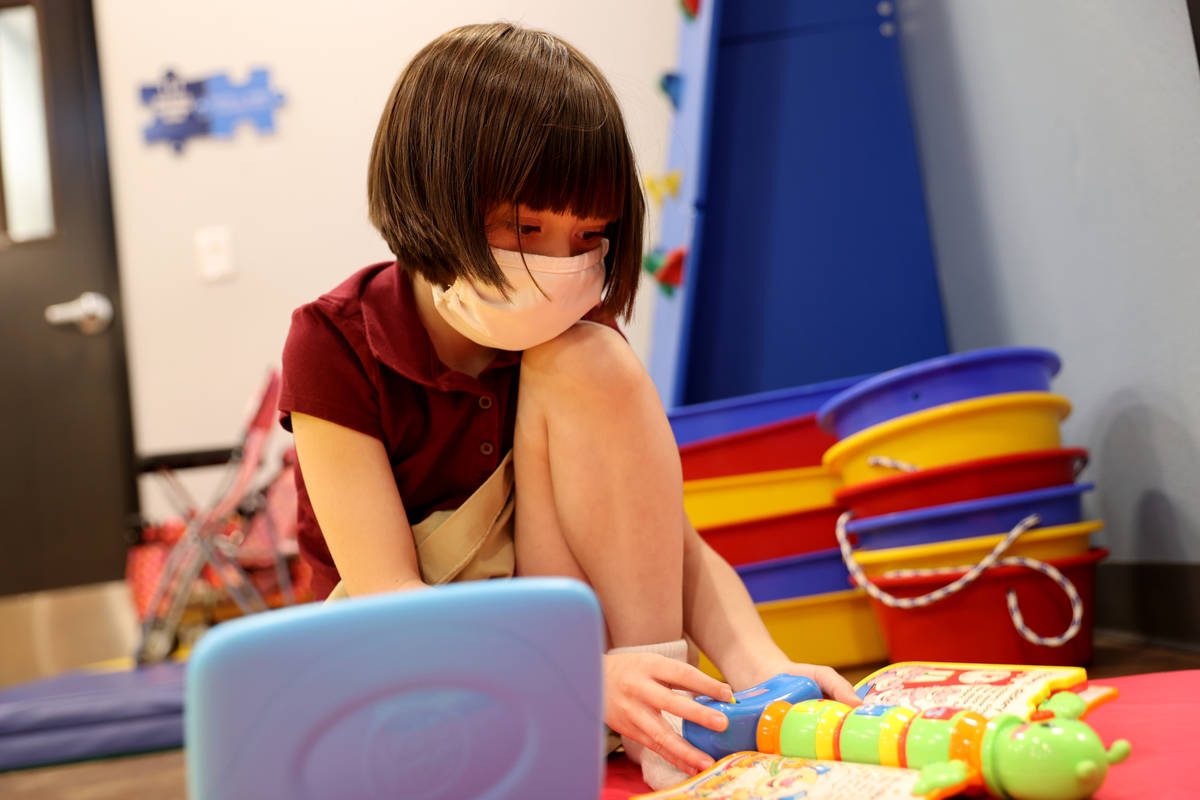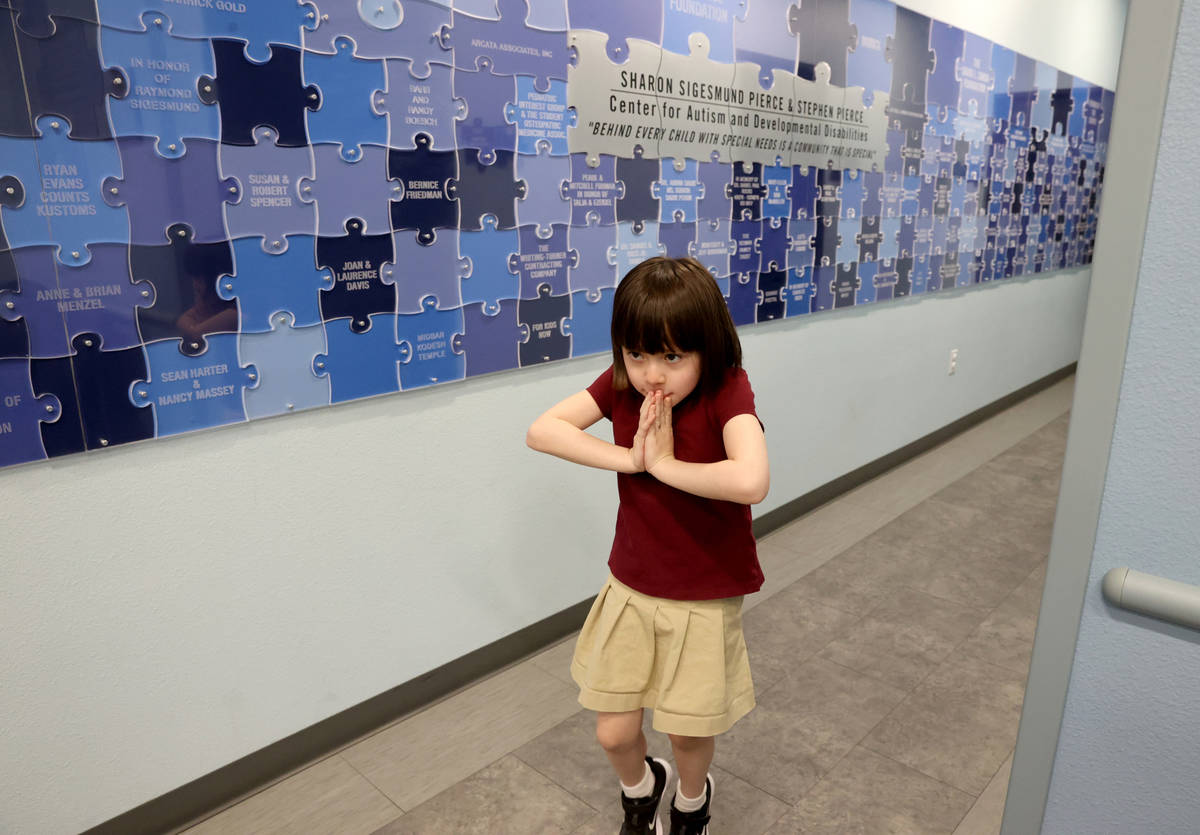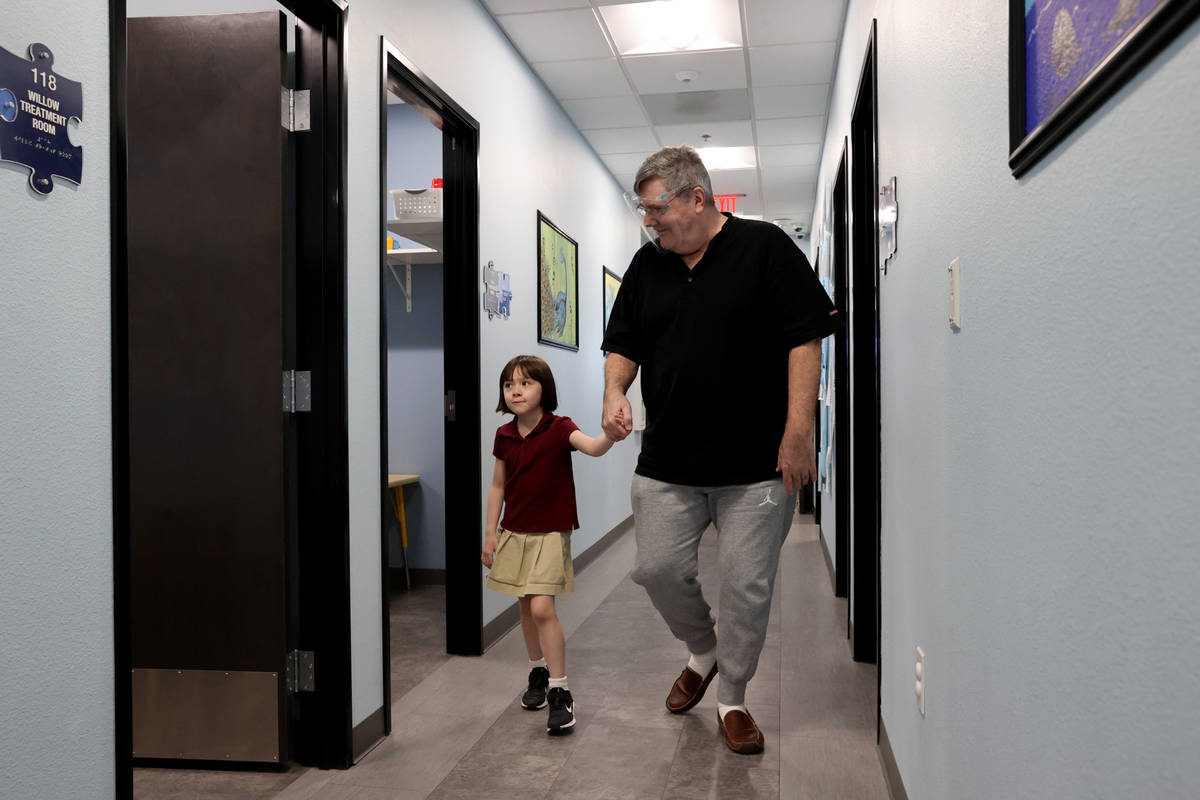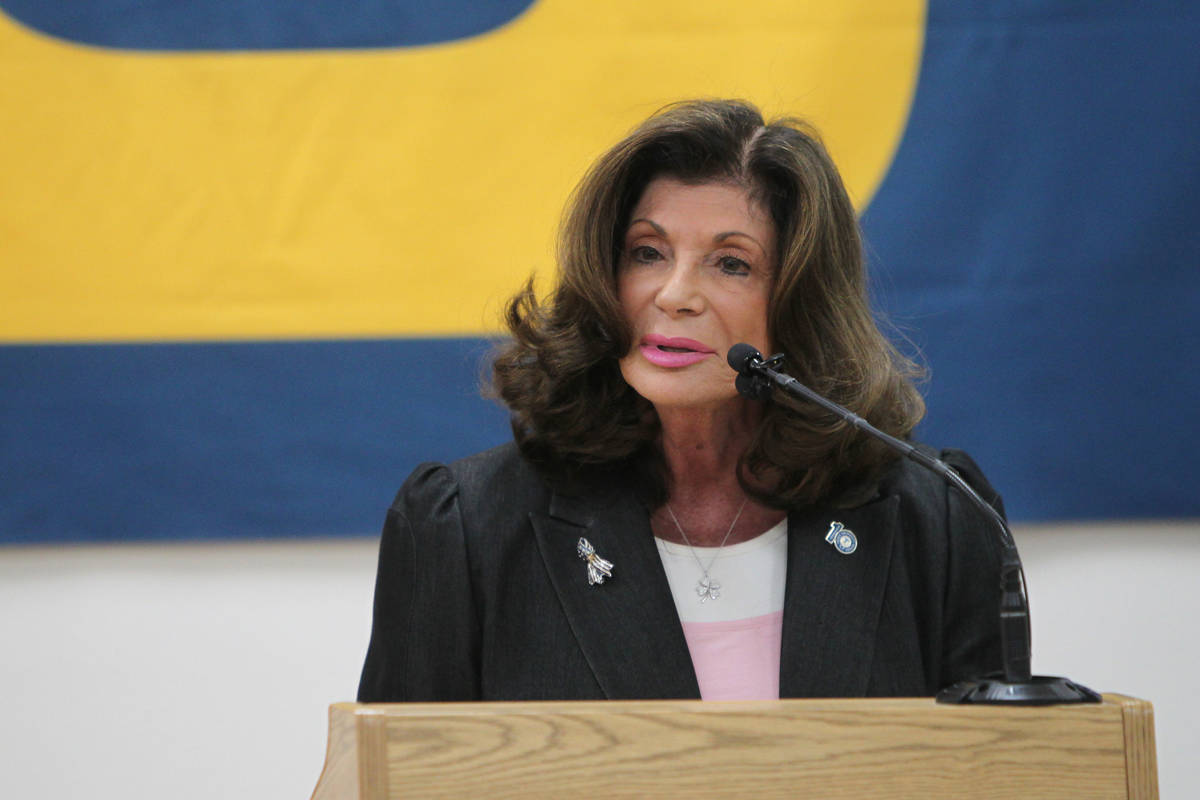Touro University Nevada receives $3M gift for autism center
Touro University Nevada is getting a $3 million endowment gift for its autism center from the Middle Eastern nation of Qatar.
The funding for the private Henderson university’s Center for Autism and Developmental Disabilities will be used primarily for scholarships for Southern Nevada families who don’t have health insurance or can’t afford to pay for care at the center. The scholarships will be awarded beginning in June 2022.
“Touro has always helped clients if they can’t afford services,” said Shelley Berkley, CEO and senior provost for the university’s western division. “This will go a very long way to ensure that nobody with autism ever gets turned away from our facility and that we will be able to enhance the types of therapies that we provide for autistic children and their families.”
The university plans to invest the donated money and hopes the interest will be what pays for scholarships for families, Berkley said. “We would like to keep the principal so it would be an ongoing endowment that would last forever.”
Touro’s autism center, which opened in 2008, serves children from 18 months to 12 years old. In addition to diagnosis, it offers services such as occupational, physical, speech-language and applied behavioral analysis therapies.
Before the arrival of the COVID-19 pandemic, the center was logging about 535 patient visits per month. But the center closed in spring 2020 and “lost a number of therapists,” Berkley said, noting it’s now gradually reopening.
“As the restrictions lift and we get back to whatever the new normal is going to be, we’re going to be able to hopefully exceed the 535 patient visits,” Berkley said, adding, “If we need more therapists, we will hire them.”
Berkley said a hope for the future is to also expand services to include children ages 13 to 18.
Autism spectrum disorder is a condition that can include challenges with behavior and communication, and is four times more common in boys than girls, according to the Centers for Disease Control and Prevention.
Qatar’s involvement
Touro’s autism center is one of six U.S. organizations to receive a donation from Qatar announced this month.
About two years ago, Berkley received a phone call saying Qatar’s ambassador to the United States was planning to visit Las Vegas and heard about Touro University Nevada’s autism center. She gave him a tour of the campus, but primarily focused on the autism center.
“It was very apparently from the beginning that this is where his interests lie,” Berkley said.
Following the tour, Berkley had limited contact with the embassy for about one-and-a-half years. Then, a few months ago, she received word the center would receive a $3 million endowment grant.
Autism is not rare in Qatar, which had a population of 2.83 million in 2019, according to the World Bank. A 2019 autism prevalence survey conducted in the Persian Gulf nation estimated that about 1 in 88 children there has an autism spectrum disorder.
That compares to about 1 in 54 children in the United States.
The royal family of Qatar also has had “an international footprint when it comes to autism and improving the quality of life for those with autism,” Berkley said.
For example, she said, Sheikha Moza bint Nasser, wife of former Emir Hamad bin Khalifa Al Thani, proposed creating World Autism Awareness Day, which is now recognized on April 2 each year.
In a statement to the Review-Journal, Meshal bin Hamad Al-Thani, Qatar’s ambassador to the United States, said the Persian Gulf nation remains committed to increasing international awareness about the disorder.
“Touro University Nevada’s Center for Autism and Developmental Disabilities is already doing incredible work for children facing developmental challenges,” he said. “This gift will pave the way for patients who may otherwise have seen cost as a barrier to afford treatment at the center, which is particularly important as families recover from the adverse economic effects of COVID-19.”
One family’s experience
Henderson residents Gary Haase and Thuan Tong-Haase have been bringing their 6-year-old daughter Akara to Touro’s autism center for nearly three years.
Akara enjoys coming to the center and views it as a fun event, Gary Haase said, noting she calls it “Touro University playground.”
Haase said the therapies have had an unbelievable effect on his daughter, who was diagnosed at age 3.
Pre-pandemic, Akara was receiving a few types of therapy — with the exception of speech therapy — under one roof at Touro. Now, she’s only receiving applied behavioral analysis at the center since the other therapies aren’t yet back up and running yet due to COVID-19 impacts.
Haase said that in his daughter’s younger years, he and his wife weren’t sure what her capabilities would be and as parents were extremely concerned.
“There was a time when she was younger where we didn’t know whether she would be fully verbal or not,” he said.
They jumped into trying to find therapy from anywhere they could and went all over town.
“It’s because our little girl needed the help so badly, so desperately,” Haase said, but noted it’s not easy to access services.
After getting recommendations from a doctor, the family had Akara on Touro’s waiting list for more than a year.
“We know that Touro is really good and they have many things,” Tong-Haase said. The center also provides information for parents, she said, noting she has learned a lot.
Now, Akara has shown she’s probably going to be fully verbal and speaks beautifully with prompting, Haase said. She’s also made many physical improvements, too, he added proudly.
Contact Julie Wootton-Greener at jgreener@reviewjournal.com or 702-387-2921. Follow @julieswootton on Twitter.



